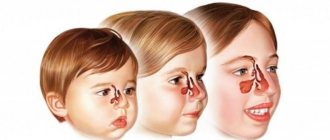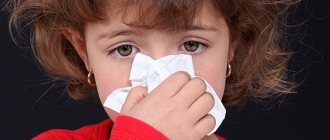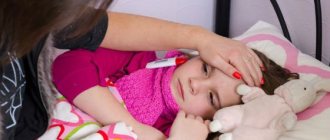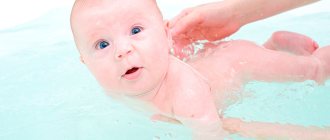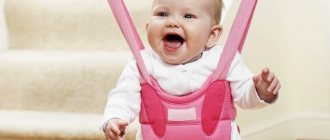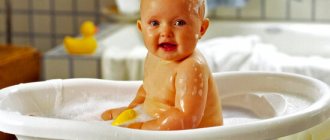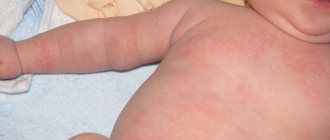Parents who have children aged 5-10 years often encounter the problem of childhood bedwetting. Of course, this issue worries them and the first thing they should do is consult a doctor.
According to experts, if the baby is not yet 5 years old, there is no need to worry. This is exactly the age when children get to know their body and study their physiological needs.
There is no need to worry, but it is also not advisable to ignore urinary incontinence in children, especially if the child is over 5 years old. Boys and girls of primary school age should already be able to cope with the process of urinary control on their own; after all, by the age of four, almost all healthy children are quite capable of going to the toilet during the day and even at night.
Causes
Daytime enuresis in little girls and boys requires close medical attention. It is important to find out the cause of the problem and fix it in a timely manner. Otherwise, the child may develop a persistent inferiority complex, which will be difficult to get rid of for many years.
Among the reasons that provoke daytime incontinence, doctors identify dysfunction of the genitourinary system, which appears due to injury to the skull and spine.
In some cases, pathology is caused by:
- cerebral palsy;
- inflammation of the spinal cord;
- arachnoiditis;
- cystitis;
- pyelonephritis;
- psychological problems;
- anatomical defects of the bladder or pelvis;
- heredity.
Daytime incontinence in girls and boys is a common symptom of endocrine and autoimmune diseases. It is often observed in children suffering from diabetes and hypothyroidism.
Sometimes the disease is promoted by immaturity of the central nervous system, resulting from a birth injury or a problematic pregnancy. A prerequisite for violations may be:
- intrauterine infection of the fetus;
- late toxicosis;
- polyhydramnios;
- fetal hypoxia;
- risk of miscarriage;
- Lack of vitamins in a pregnant woman.
Any of the above reasons can disrupt the connection of nerve endings between the bladder and the brain. The child does not feel the urge to go to the toilet when the bladder is full, or feels it so strongly that he cannot restrain it. As a result, uncontrolled urine production occurs.
Classification
A few words about the types of this disorder. It is divided into three categories - daytime, nighttime, and joint. In turn, nocturnal enuresis in children is divided as follows:
- primary - typical for babies who do not wake up at night to urinate. As the child grows up, this problem disappears by itself in almost 100% of cases;
- secondary - return to bedwetting after a long “dry” period;
- incontinence without complications - periodically bedwetting occurs in a completely healthy child;
- enuresis, which is neurotic in nature - observed in timid, suspicious children;
- an anomaly based on the characteristics of the nervous system - typical for excitable, restless children.
The type of disease helps the doctor determine the cause and decide how to treat enuresis.
Symptoms and signs
The main symptom of the disease is involuntary urination. The child does not notice the urge to urinate and does not know how to control it.
If the cause of the pathology is an infectious process, enuresis is accompanied by:
- painful sensations in the lower abdomen;
- frequent urination;
- increase in body temperature.
When the disease is caused by a disorder of the nervous system, the baby may suffer from excessive irritability, hysterics, and headaches. If incontinence occurs regularly, the child becomes secretive, depressed and withdraws into himself. To avoid psychological problems in the future, he needs the help of a specialist and the care of his parents.
Nocturnal enuresis in children 7 years old
The term enuresis (from the Greek enureo - “to urinate”) is commonly used to describe bedwetting in children over 5 years of age. Therefore, the definition of “nocturnal enuresis” is essentially a tautology, although it has taken root in speech. In addition to enuresis, there is another urinary pathology - daytime urinary incontinence. If a 7-year-old child pees during the day, then this most likely has nothing to do with enuresis. This disease has its own mechanisms, developmental features and causes. For involuntary urination at night, the reasons are completely different. Causes of nocturnal enuresis in children 7 years old. • One of the most common causes is heredity. If at least one of the parents had the same disease in childhood, the probability that it will be passed on to the child is about 45%. If both mom and dad suffered from enuresis, then this figure rises to 75%! • Often the source of enuresis is birth trauma or trauma the mother received during pregnancy. This leads to disturbances in the child’s nervous system, which, in turn, inhibits his development of skills to restrain the urge to urinate. • Sometimes pathologies of the internal organs of the urinary system, an injured, underdeveloped or weakened bladder or ureters do not allow urine retention. • Urinary tract infections can also cause urinary incontinence and excessive urination. • Not so long ago, doctors identified another reason - hormonal. Enuresis can be caused, as it turned out, by insufficient production of the hormone vasopressin by the pituitary gland. It is this hormone that helps the body sleep peacefully, despite the urine produced by the kidneys. Vasopressin makes its concentration higher and its quantity lower. With a lack of vasopressin, the same non-concentrated fluid accumulates in the bladder as during the day, in the same volume that a child’s bladder cannot cope with. Treatment of enuresis in a 7-year-old child. If a 7-year-old child regularly pees in bed at night, this causes him severe discomfort. Due to age characteristics, 7-year-old children are very susceptible and vulnerable, so the situation with urinary incontinence negatively affects the child’s psychological balance, self-esteem and communication with peers. Considering that 7 years is the age when a child has just entered school life, such a blow to the psyche can affect all further development and the process of socialization. That is why you should not delay the treatment of enuresis. Of course, a doctor should treat urinary incontinence in a 7-year-old child, since self-medication may not only not be beneficial, but also harm the child’s health. Therefore, you should not expect that the child will “outgrow” everything, especially if the enuresis is secondary (that is, it appeared after a long “dry” period). The main thing in treatment is to correctly identify the cause. To determine the source of the disease, the specialist carefully examines the patient. The child's urine and blood are tested, the bladder and kidneys are examined using ultrasound, and the rhythm of urination episodes and the volume of urine excreted are monitored. You may also need to consult a neurologist and psychologist if the doctor sees the need for this. After diagnosis, the specialist prescribes treatment. Drug treatment most often consists of influencing the hormonal system and psychological state of the child. The lack of the hormone vasopressin is compensated by the drug Minirin, which is desmopressin - a synthetic analogue of the “native” vasopressin. An herbal sedative may also be prescribed to reduce stress levels. Specific medications are prescribed in each case - for example, antibiotics for urinary tract infections, etc. The outcome of treatment largely depends on the parents’ attitude towards the child’s illness. An atmosphere of support and participation will help the patient quickly cope with psychological discomfort and have a positive impact on his well-being. Mothers can also help the doctor during the examination by keeping a diary with a schedule of the child’s “dry” and “wet” nights. By the way, today a specially developed application for smartphones “Dry nights - happy days” is already available, which allows not only about the night, the number of episodes of urination per day, but also the amount of liquid the child drinks. So with this new product it is also convenient to control your drinking regime.
Diagnostics
If uncontrolled urination during the day is observed in a child over 4 years old, you need to contact your local pediatrician and undergo an examination. After examining the patient, the doctor prescribes a consultation:
Advertising:
- urologist and gynecologist;
- neurologist;
- psychotherapist.
To determine the cause of dysfunction, you should take urine and blood tests and do:
- Ultrasound of the kidneys and bladder;
- cystoscopy;
- electromyography of bladder muscle tissue;
- urography;
- X-ray of the spine;
- electrocardiogram;
- MRI.
To find out the volume of urine excreted per day, you need to keep a special diary. It is necessary to record the time of urination, the amount of urine passed at one time, and all cases of uncontrolled emptying of the bladder.
If necessary, the doctor may recommend other tests to find out the full picture of the disease. Treatment tactics depend on the established diagnosis. Treatment is prescribed on an individual basis.
Therapy
Daytime enuresis in boys and girls needs to be treated comprehensively. The use of several techniques increases the chance of recovery and in most cases guarantees relief from incontinence.
Medication
If the child is unable to restrain the urge to go to the toilet, the following are prescribed:
- M-anticholinergics. They can be used for children over 5 years old. The course of therapy is from 1 to 3 months. The most popular drugs are Spazmex and Driptan. They must be taken strictly following the dosage and paying close attention to the baby’s condition. Sometimes medications cause side effects: rapid heartbeat, constipation, restless sleep, nausea, headaches .
- Adrenergic blockers. Medicines relax the bladder muscles, causing them to stretch better and hold more urine. Doxazosin or Alfuzosin are used to treat children. The duration of treatment is several months. The drugs have many side effects and are prohibited for diseases of the cardiovascular system, renal failure and congenital anomalies of the bladder.
- When the pathology is a consequence of dysfunction of the nervous system, tranquilizers are needed to calm hysteria and hyperexcitability, for example, Medazepam and Hydroxyzine.
- The pediatrician often recommends nootropic drugs (Piracetam, Glycine, Picamilon). These medications normalize the nervous system, relieve anxiety, and prevent stress and depression.
Physiotherapy
Physiotherapy is useful in combination with drug treatment. Well proven:
- acupuncture;
- electrical stimulation of the pelvic floor muscles;
- magnetic therapy;
- laser treatment;
- electrophoresis.
Quick success can be achieved with a massage that improves the tone of the bladder and strengthens the muscles of the perineum.
Psychotherapy
Enuresis provoked by neurotic disorders requires the intervention of a psychiatrist. The child's parents must be present at the consultation. The specialist will explain to adults how to properly respond to a child’s daytime incontinence and relieve the little patient from a depressed state.
General neurotic disorders respond well to therapy with fairy tales, drawing, and listening to special music. For children over 10 years old, the method of self-hypnosis and auto-training is used .
What you need to know about treating urinary incontinence?
Dr. Komarovsky draws the attention of parents and warns that without the active and ardent desire of the child himself, it is almost impossible to cope with this problem. But there is no point in starting the disease.
Contacting specialists in time will help to avoid a decrease in the quality of life of the entire family, not just the child, and in the future, will reduce the likelihood of complications associated with normal kidney function.
Treatment of enuresis in boys will help eliminate the possibility of problems with potency, as well as sexual life in general.
How to treat enuresis? Therapy is determined based on the sources that caused the formation of the disease and, as a rule, a comprehensive method is used in the treatment of enuresis in children and adolescents. This is the use of drugs, methods of psychological influence, adjustment of the usual way of life and folk remedies.
According to Dr. Komarovsky, treatment of a child should begin with motivational therapy, that is, make your son or daughter want to cope with this disease on their own, rewarding the baby for every dry night.
The treatment process begins with an examination of specialist doctors:
- pediatrician;
- neurologist;
- psychiatrist.
Clinical blood and urine tests help the specialist assess the general health of a small patient.
Ultrasound examination of the kidneys and cystoscopy of the bladder allows us to determine the presence or absence of malfunctions in the functioning of these organs. Additionally, the doctor may recommend visiting a psychologist to take a test to determine the patient’s level of self-esteem, and electroencephalography, which determines the state of the brain.
Ultrasound
For involuntary daytime urinary incontinence, psychotherapy is used exclusively if signs of neurological disorders or defective structure of the urinary tract or epileptic seizures are established.
When treating with drugs the following is used:
- sedatives, tranquilizers, are indicated for very active and excitable children, as well as indecisive and timid ones;
- antibiotics are prescribed when infectious pathologies are detected;
- in case of detection of problems in the development of the nervous system, medications are indicated for use that accelerate the progress of its formation, the so-called nootropics.
Drug treatment, according to Dr. Komarovsky, should be used starting from 8 years of age.
Methods of psychological influence help to relax the child’s psyche and increase his self-esteem, as well as develop habits that were not acquired naturally.
For example, in the treatment of nocturnal enuresis they use the “alarm control” system, that is, they forcibly wake up the child and force him to go to the potty at night. Komarovsky recommends that mothers use this method.
The doctor chooses from a variety of existing methods the one that suits a particular baby.
Parents should provide their child with attention and care, try to eliminate situations that can cause fear or stress, and follow the course of treatment prescribed by the doctor.

